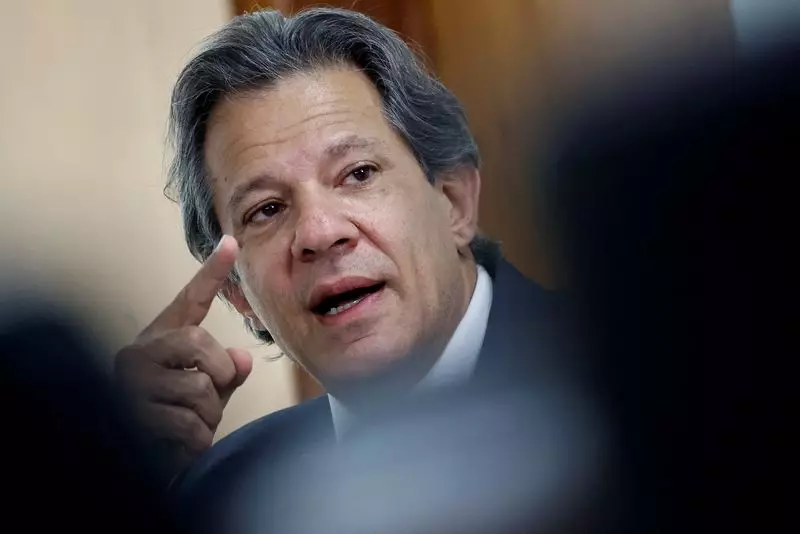Brazil’s economic environment currently faces significant challenges, particularly concerning fiscal responsibility and investor confidence. Recent decisions by Finance Minister Fernando Haddad illustrate the government’s attempt to navigate these turbulent waters. Haddad’s abrupt cancellation of a scheduled trip to Europe signals the urgency with which the Brazilian government must address mounting pressures for fiscal austerity. This situation is reminiscent of past economic crises where delays in action have led to increased market volatility.
The Influence of Market Sentiment
Investor sentiment plays a pivotal role in shaping Brazil’s financial landscape. Following Haddad’s announcement to remain in Brasilia, the U.S. dollar soared to its highest value against the Brazilian real since May 2020. This spike underscores the investors’ nervousness stemming from an incomplete understanding of the government’s fiscal plans. With the shadow of uncertainty looming over the Brazilian economy, market participants are keenly awaiting concrete measures that reflect fiscal discipline. The timing of these announcements is crucial, especially with the U.S. presidential election looming, indirectly impacting foreign investment and currency stability in Brazil.
Effective communication is essential for any government, especially regarding fiscal strategy. Brazil’s Finance Ministry has been criticized for its vague timelines and lack of transparency about spending cuts. Although government officials hinted that new measures would emerge after the recent municipal elections, this has not reassured investors. Local media reports indicate skepticism regarding the likelihood of any proposals being unveiled in the immediate future, thereby amplifying concerns about the government’s commitment to fiscal reform. Brazil’s socio-political climate demands that transparency and prompt action are prioritized to restore confidence and stave off additional market turbulence.
Although Haddad’s change in plans was suggested by President Luiz Inacio Lula da Silva, it speaks volumes about a strategic pivot towards addressing domestic challenges. Staying focused on local issues implies a reactive approach to the growing pressures from both the market and the populace. While it may seem that prioritizing domestic policies could yield short-term benefits, it must be balanced with long-term fiscal strategies to ensure sustained economic stability.
The Path Ahead
Looking forward, Brazil’s administration must tackle fiscal reform with urgency. The ongoing dialogue surrounding spending cuts is not merely an economic necessity; it’s essential for maintaining the confidence of international investors and the Brazilian public alike. Haddad’s eventual travel plans may serve a strategic purpose; however, immediate attention to domestic fiscal policies cannot be understated. Only with clarity and decisive action can Brazil reclaim its position as a competitive player in the global economy while assuring its citizenry of sound management of public finances.

